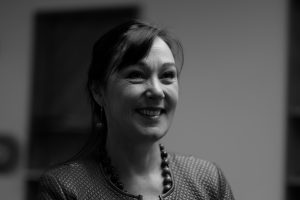
“Astoundingly, I have been awarded the incredible honour of 2017 Tasmanian Australian of the Year after being nominated by someone who has most generously chosen to remain anonymous.
“I have been teaching reading and writing to a small number of men in prison, using methods informed by the way in which the speech sounds and how the structures of language are processed in the brain. This means learning to discern and pronounce each of the phonemes (speech sounds). It means making the connection between these essential building-blocks of the spoken word and linking them tightly to the building blocks of the written word – graphemes (letters and spelling patterns). It means teaching vocabulary. And morphology. It means being patient, persistent, non-judgmental and kind. It means opening a way for hope.
“For people in prison, it is known that supporting hope is a major factor in bringing positive change. Developing skills is essential too, but hope is the necessary first ingredient in the process, before the hard work of skills development is undertaken.
“Hope opens an invitational and welcoming space in minds and hearts. Hope allows the asking of that great empowering question, ‘How could things be otherwise?’ This is a question which dares to look beyond the circumstances. Marshall Ganz, sociologist, says ‘hope is substantial’.
“The most powerful builder of hope is kind, caring relationships. Great strength lies in kindness. It is not a weak or idealistic concept. Kindness in communication is transformational – kindness in speaking and kindness in listening. In our ‘always-talking culture’, listening is the forgotten half of communication.
“And a major tool of independent voice and personal agency is the communication which takes place in print form – literacy. Kindness is relevant in bringing literacy to those who were denied, for whatever reason. Adults learning these skills hold fears and vulnerabilities planted in earlier negative experiences. Kindness and non-judgment gives the learner the opportunity to glimpse how their intrinsic worth is being positively experienced by someone else. And hope can begin…”